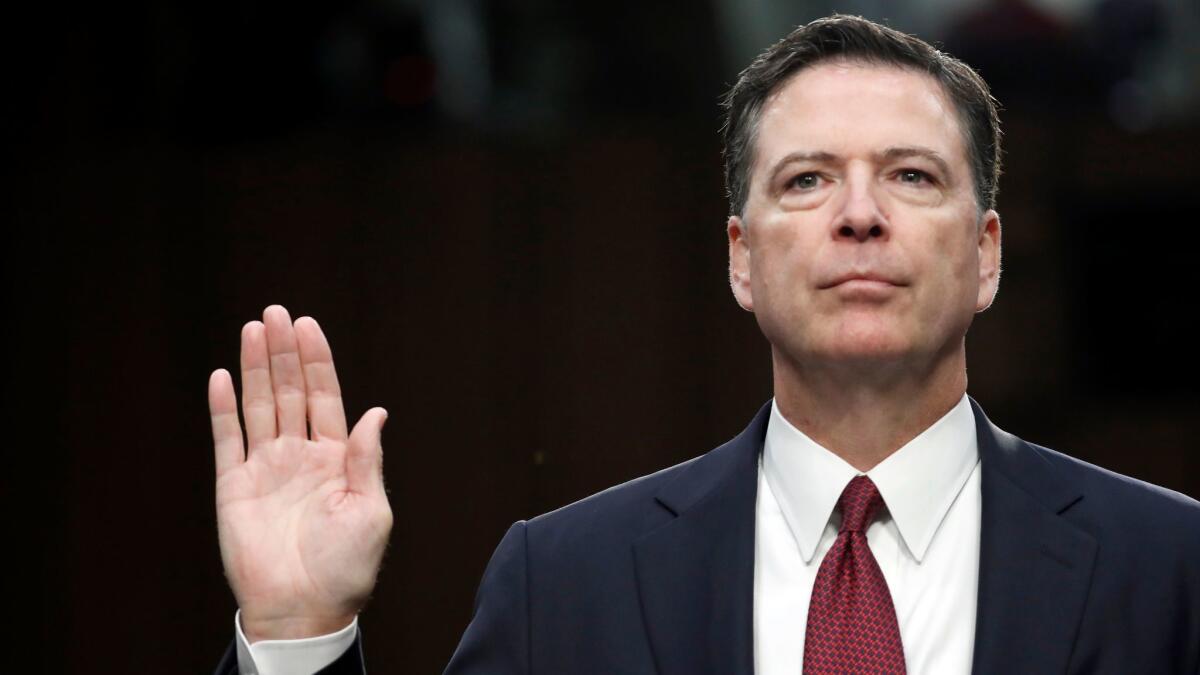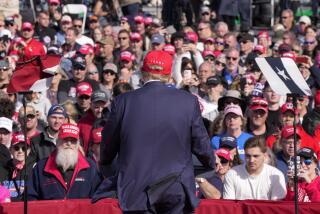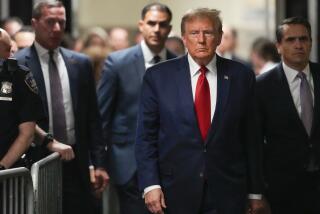Editorial: In a credibility contest with Trump, James Comey is the obvious winner

Even though his prepared statement had been released and read by millions of Americans a day earlier, former FBI Director James B. Comey’s testimony Thursday before the Senate Intelligence Committee was sensational, riveting and sickening.
Not only did Comey, as expected, say that President Trump repeatedly demanded his “loyalty” and beseeched him to abandon an investigation of former National Security Advisor Michael Flynn. He also told the committee that he made detailed notes of their conversations because he was “honestly concerned that [Trump] might lie” about it later. And he said he concluded that he was fired because of the FBI’s investigation of possible ties between Russia and the Trump campaign. The administration’s alternative explanations — including that the FBI was in disarray and was being poorly led — were, he said, “lies, plain and simple.”
Comey’s performance was believable and deeply troubling, as he responded calmly and confidently to questions from members of the committee, including Republicans who acted more as defense counsel for Trump than as impartial investigators. Sen. James Risch of Idaho, for instance, tried to dismiss Comey’s claim that Trump had told him, in a one-on-one meeting in the Oval Office, that “I hope you can see your way clear to letting this go, to letting Flynn go.” Risch said: “He didn’t direct you to drop the case,” to which Comey replied, “Not in those words [but] I took it as a direction.” Given the context — the president of the United States leaning on a subordinate in a room from which everyone else has been dismissed — who wouldn’t?
Marc Kasowitz, a lawyer for Trump, contradicted Comey’s assertions, saying the president had never sought a loyalty pledge from the director or tried to stop the investigation of Flynn. That strikes us, frankly, as far-fetched. Kasowitz also noted — correctly — that Comey had confirmed that he privately had told Trump at various times that he himself wasn’t then under investigation by the FBI as part of its Russia probe.
The problem for Trump is that Comey is an experienced public servant with a reputation for rectitude, while Trump is a serial prevaricator whose campaign is currently being investigated not only by two congressional committees but by a special counsel whose mandate could be expanded to include the circumstances of Comey’s dismissal. Trump shouldn’t be surprised that he’s the one with the credibility problem.
Trump’s behavior toward Comey may or may not meet the legal definition of obstruction of justice, but any American can see that it was grossly inappropriate. It’s yet another misstep by an undisciplined, arrogant president who appears to have no compunction about breaking the rules when it comes to advancing his own interests.
Follow the Opinion section on Twitter @latimesopinionand Facebook
More to Read
A cure for the common opinion
Get thought-provoking perspectives with our weekly newsletter.
You may occasionally receive promotional content from the Los Angeles Times.






